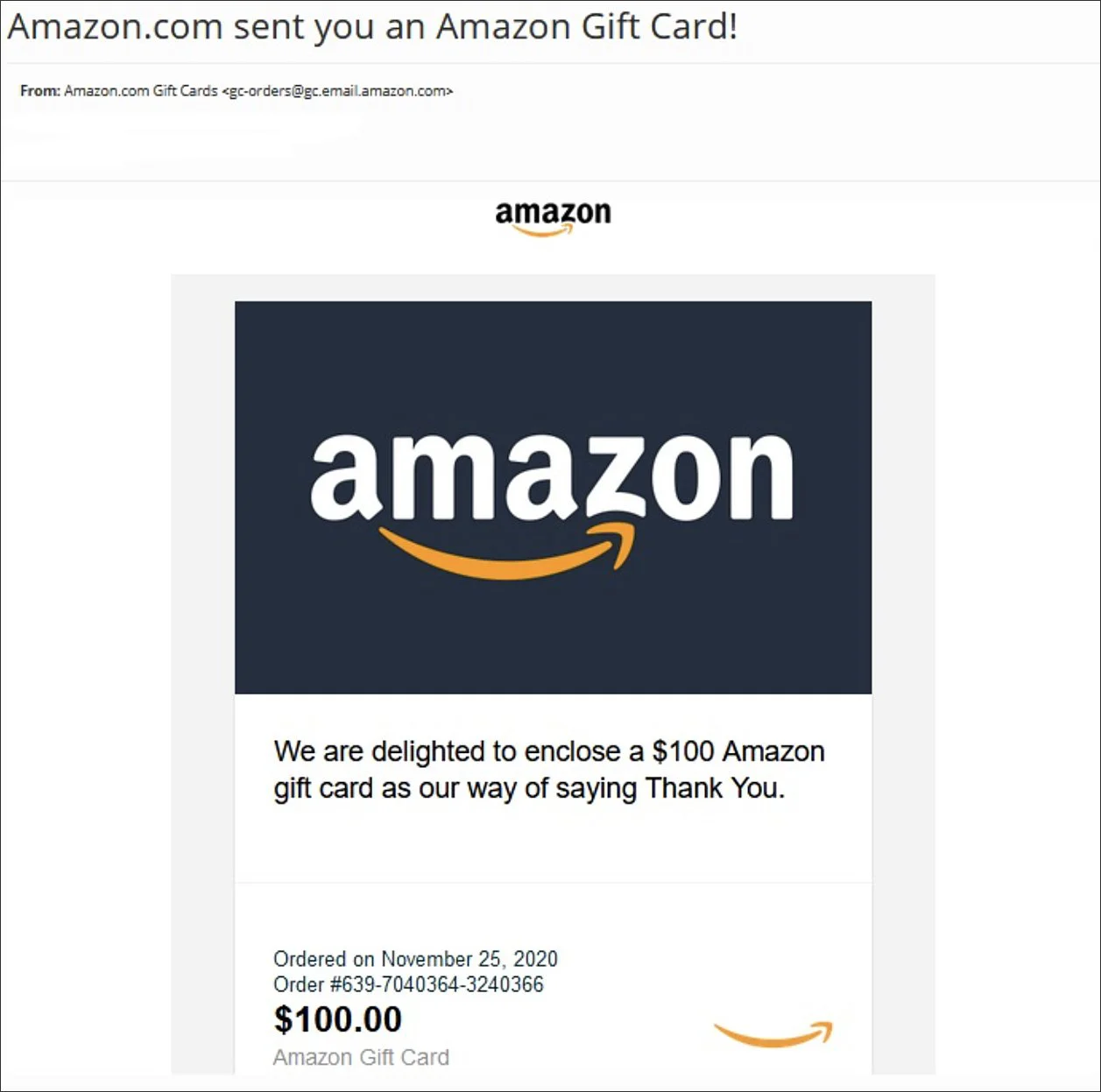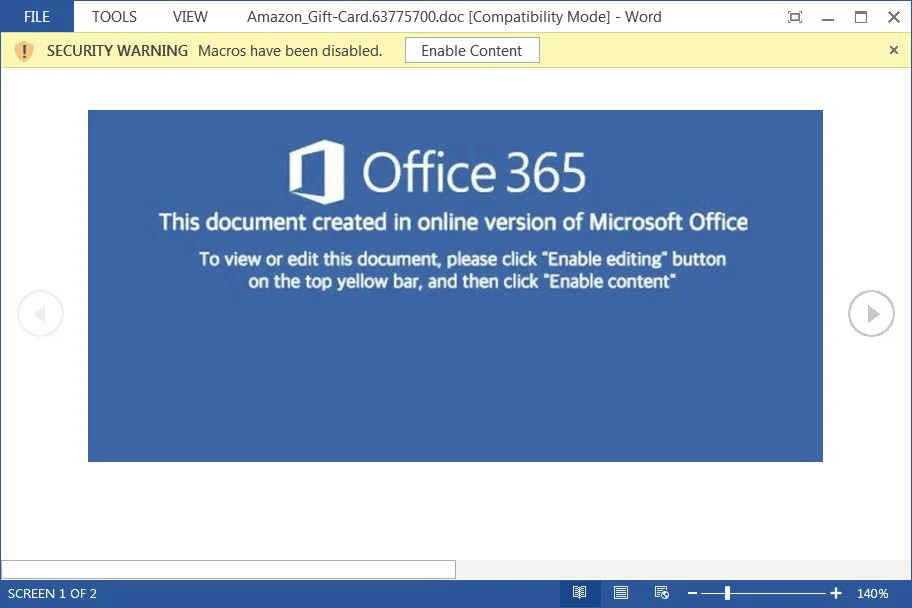KEEP IN TOUCH
Subscribe to our mailing list to get free tips on Data Protection and Cybersecurity updates weekly!







The Dridex malware gang is delivering a nasty gift for the holidays using a spam campaign pretending to be Amazon Gift Cards.
Dridex is a modular banking trojan that can perform various malicious activities, including stealing login information, logging keystrokes, taking screenshots, and downloading and installing further malware.
Dridex is particularly dangerous because it is known to give the DoppelPaymer and BitPaymer threat actors access to compromised networks to deploy their ransomware.
When distributing malware, malware gangs commonly use current events and the holidays as themes for phishing campaigns to lure people into opening malicious attachments.
Such is the case in a recent phishing campaign discovered by cybersecurity firm Cyberreason that pretends to be an Amazon gift certificate sent via email.
These emails, shown below, pretend to be a $100 gift certificate that users must redeem by clicking on a phishing email button.
Also Read: Key PDPA Amendments 2019/2020 You Should Know

When the button is clicked, it will download malicious Word documents with names similar to ‘Amazon_Gift_Card,’ ‘Order_Gift_Cart,’ and ‘Amazon_eGift-Card.’
When opened, the attachments will state that they were created in an online version of Microsoft Office and prompt the recipient to click on the ‘Enable Content’ button. Doing so, though, will execute malicious macros that download and install the Dridex malware, and possibly other payloads, on the victim’s computer.

With the holidays upon us and so many people celebrating remotely, Amazon gift cards are likely to be a common gift this season. Due to this, it is vital to remember that Amazon will never prompt you to download a file to redeem a gift certificate.
Instead, a legitimate Amazon gift card email will contain a code that you redeem on the Amazon site to add the funds to your account.
Also Read: The 5 Benefits Of Outsourcing Data Protection Officer Service
If you receive any emails pretending to be gift cards and prompting you to download and open Word documents, immediately close them. If you are still unsure if an eGift card is legitimate, contact the sender via phone (not email!) and ask if they sent you the gift.